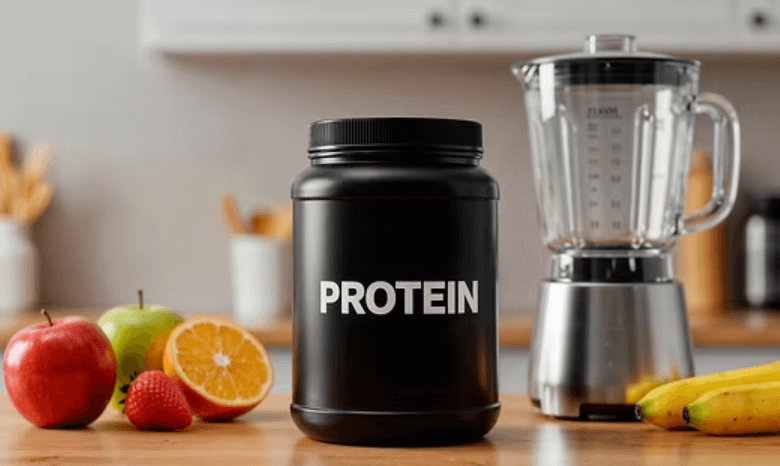The Role of Protein Shakes in Modern Nutrition

Introduction to Protein Shakes
In today’s fast-paced lifestyle, maintaining proper nutrition can be challenging. Protein shakes offer a convenient solution for individuals looking to meet their daily protein requirements efficiently. Beyond being a supplement for athletes, protein shakes are increasingly popular among health-conscious individuals seeking muscle maintenance, weight management, and overall wellness.
How Protein Shakes Benefit Health
Protein shakes provide essential amino acids, which are the building blocks for muscles, tissues, and vital body functions. Consuming a protein shake after exercise helps repair muscle fibers, reduce soreness, and enhance recovery. They also support lean muscle growth, making them an integral part of fitness and training programs.
Additionally, protein shakes can assist in weight management. They promote satiety, reducing hunger and minimizing the consumption of unhealthy snacks. By maintaining adequate protein intake, individuals can protect lean muscle mass during periods of calorie reduction or intense workouts.
Types of Protein Shakes
Protein shakes come in various types to meet different dietary preferences and needs.
Whey Protein Shakes
Whey protein is a milk-derived protein that is quickly absorbed by the body. Whey protein shakes are ideal for post-workout recovery, helping muscles repair and grow rapidly.
Plant-Based Protein Shakes
Plant-based protein shakes, made from sources such as soy, pea, or rice protein, cater to vegetarians, vegans, and those with lactose intolerance. They provide essential amino acids while being easy to digest.
Casein Protein Shakes
Casein protein is slowly digested, providing a steady release of amino acids over time. Casein shakes are often consumed before bedtime to support overnight muscle recovery and prevent muscle breakdown.
Blended Protein Shakes
Blended protein shakes combine fast-digesting and slow-digesting proteins, offering both immediate and prolonged nutritional support. These shakes are suitable for individuals looking for a complete protein source throughout the day.
See also: Streamlining Healthcare Services for Better Patient Support
Health Advantages of Protein Shakes
Including protein shakes in a regular diet can deliver multiple benefits:
- Muscle Repair and Growth: Protein shakes supply essential amino acids needed to repair and build muscle tissue.
- Weight Management: They promote a feeling of fullness, reducing unnecessary calorie intake.
- Convenience: Protein shakes provide a quick and efficient way to meet protein needs without preparing complex meals.
- Bone Support: Many protein shakes are fortified with calcium and vitamin D, promoting strong bones.
- Metabolic Boost: Adequate protein consumption can enhance metabolism and support overall energy levels.
Choosing the Right Protein Shakes
Selecting the right protein shakes depends on personal goals, dietary preferences, and lifestyle. Important considerations include:
- Protein Content: Choose shakes with sufficient protein per serving to meet daily requirements.
- Source of Protein: Determine whether whey, casein, plant-based, or blended proteins are best suited to your needs.
- Additional Nutrients: Some shakes include vitamins, minerals, and fiber for a more complete nutritional profile.
- Sugar and Calorie Levels: Avoid shakes high in added sugars or excess calories if your focus is weight management.
- Taste and Mixability: A shake should be palatable and blend easily with water, milk, or other liquids.
Protein Shakes for Fitness and Recovery
Protein shakes are a key component of many fitness routines. They help replenish amino acids lost during exercise, accelerate recovery, and reduce muscle soreness. For athletes and active individuals, consuming protein shakes consistently can enhance performance, increase strength, and maintain lean muscle mass.
For those with busy schedules, protein shakes offer a practical alternative to ensure adequate protein intake without requiring meal preparation. When combined with a balanced diet, protein shakes can help individuals maintain overall health while achieving fitness objectives.
Common Misconceptions
There are several misconceptions about protein shakes. Some people believe they can build muscle without exercise, which is not true. Protein shakes are most effective when paired with physical activity. Another misconception is that protein shakes may harm kidney health; however, moderate consumption by healthy individuals is safe and beneficial.
Tips for Maximizing the Benefits of Protein Shakes
To get the most from protein shakes, consider these practical tips:
- Timing: Consume a protein shake post-workout to optimize muscle recovery.
- Consistency: Incorporate shakes regularly to meet protein requirements consistently.
- Balanced Diet: Use protein shakes to supplement meals rather than replace whole foods entirely.
- Hydration: Drink enough water when consuming protein shakes to support metabolism and digestion.
- Consult Professionals: Seek guidance from a nutritionist or dietitian to determine the right type and amount of protein shakes for your individual needs.
Conclusion
Protein shakes are more than just a supplement; they are a practical and effective tool for supporting muscle growth, recovery, and overall wellness. By providing essential amino acids, aiding in weight management, and promoting convenient nutrition, protein shakes have become a staple in modern dietary practices. Choosing the right type, understanding its benefits, and incorporating it into a balanced diet can help individuals achieve their health and fitness goals efficiently while maintaining optimal well-being.




